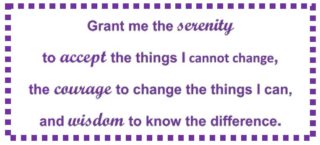Does the thought of reading a self-help book make you cringe? If it does, you’re not alone! Many people do not like the idea of reading a self-help book for fear that the book may be “preachy”, “air-fairy”, or flat-out does not relate to them. However, self-help books can be great tools both during counselling treatment, or if you are just considering a lifestyle change.
When choosing a self-help book, one of the most important things to consider is that the book is from a credible author and is backed by scientific evidence. Try and seek out books that are from reputable clinicians, and based on research evidence, instead of relying solely on anecdotes (personal stories).
You can find out if an author is credible by doing a quick Google search of the author’s name: Are they affiliated with a university? Do they have a clinical practice and registration with a medical college (e.g. College of Psychologists, College of Registered Psychotherapists)? Do they have any academic publications?
Academic publications (sometimes called journal articles) are a good way to determine if the content of a book is based on scientific evidence. For example, if you would like to read a book based on Acceptance and Commitment Therapy (ACT), try and input these terms into Google Scholar (scholar.google.ca) to see if there is research on the subject. The search below returned almost 700,000 results! This is generally a positive sign that the topic has been heavily researched. To learn more about what the research says, click on the article titles and you can read the article abstracts for more information.
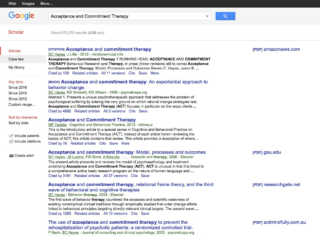
Finally, it is helpful to check out the book before making the decision to purchase! Flip through a few pages in the bookstore or on Google Books (books.google.ca), making note of the content, style of the writing, and the issues the book is addressing. Some books naturally speak to some personality types more so than others, so it is important to find a book that you feel you can relate to.
For a little inspiration, here are three of our favourite self-help books, which have changed both our lives, and the lives of clients:
1. Get Out of Your Mind & Into Your Life by Steven Hayes
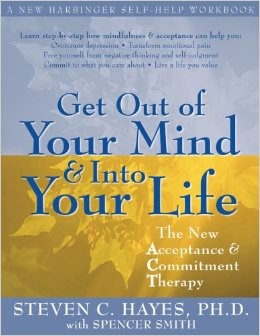 Steven Hayes is widely considered to be one of the founding fathers of Acceptance and Commitment Therapy (ACT), and has authored over 400 academic publications! Get Out of Your Mind & Into Your Life applies concepts of ACT to help readers move from feeling stuck in a struggle against their own minds to assess what is truly meaningful to them and then pursue a life guided by those values.
Steven Hayes is widely considered to be one of the founding fathers of Acceptance and Commitment Therapy (ACT), and has authored over 400 academic publications! Get Out of Your Mind & Into Your Life applies concepts of ACT to help readers move from feeling stuck in a struggle against their own minds to assess what is truly meaningful to them and then pursue a life guided by those values.
Why we love this book:
This book provides an educational background as to how human suffering occurs, and ways in which we can cope with that suffering. There are exercises and spaces for you to complete activities throughout this book, which we have found helpful to make the book more relatable to your own unique experiences.
Who could benefit most from this book:
If you are suffering from depressed mood, anxiety, stress, or want to just learn more about how ACT can help you cope with everyday situations, this book is for you!
2. The Reality Slap by Russ Harris
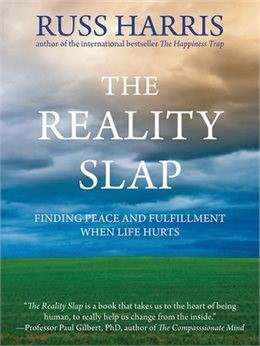
Russ Harris is a medical practitioner, psychotherapist, and leading expert in ACT. He is from Australia and travels internationally to train practitioners in the ACT approach. In The Reality Slap, Russ discusses “Reality Gaps” (such as the death of a loved one, personal illness, or loss of a job), and how we can live a life that is meaningful despite them. He then discusses ACT-inspired coping strategies, and provides guidance as to situations when these strategies could be helpful.
Why we love this book:
The Reality Slap features a style of writing that is conversational, as if you are speaking to the author. Russ’ compassionate and sometimes humorous tone is comforting to the reader, and many have described that reading this book made them feel as though they are not alone.
Who could benefit most from this book:
Anyone who has recently been through a difficult time could benefit from this book. This may include the death of a loved one, a major health diagnosis, divorce, loss of a job, an accident, or betrayal.
3. Living Beyond Your Pain by JoAnne Dahl and Tobias Lundgren
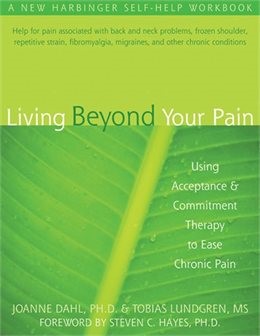
JoAnne Dahl is a prominent ACT researcher who specializes in the use of ACT to treat chronic pain and epilepsy. Tobias Lundgren is a licensed clinical psychologist who has carried out applications of ACT in clinical research areas of epilepsy, diabetes, and chronic pain. Living Beyond Your Pain reveals a new approach to living with chronic pain, which involves recognizing pain as an event in your life that does not have to interfere with the way you live.
Why we love this book:
Similar to Get Out of Your Mind & Into Your Life, Living Beyond Your Pain includes various exercises throughout the book to help the reader incorporate ACT into their lives and help transform pain from a life-defining preoccupation to just one thing in their lives that they experience.
Who could benefit most from this book:
Anyone who suffers from a chronic condition, such as chronic pain, fibromyalgia, chronic fatigue, diabetes, or chronic migraines could benefit from this book.
All of these books are available on Amazon.ca and Indigo.ca. Get Out of Your Mind & Into Your Life and The Reality Slap can also be found in some Chapters/Indigo stores.

![]()




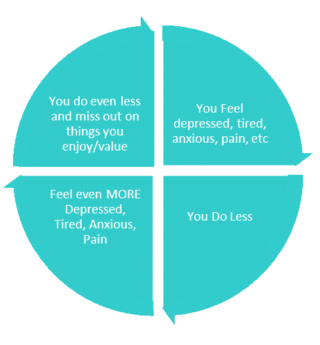 The trouble is that when we are facing depressive or anxious thoughts, going for a walk is not the first thing that comes to mind. For most people who suffer with mental health, it is quite the opposite: you may feel like doing less and avoid doing the things that are of value to you. The problem is, when you do less, you feel the impact of the symptoms even more and continue to miss out on living a meaningful life. This is a common cycle for most people, but it can be broken. Behaviour Activation (BA) can help disrupt the above stuck loops by introducing positive behaviours. Walking is an ideal behaviour to introduce as it has so many benefits for mental well-being. Improvements in mood and energy can be noticed almost immediately. Over time, many other benefits can be noticed, including:
The trouble is that when we are facing depressive or anxious thoughts, going for a walk is not the first thing that comes to mind. For most people who suffer with mental health, it is quite the opposite: you may feel like doing less and avoid doing the things that are of value to you. The problem is, when you do less, you feel the impact of the symptoms even more and continue to miss out on living a meaningful life. This is a common cycle for most people, but it can be broken. Behaviour Activation (BA) can help disrupt the above stuck loops by introducing positive behaviours. Walking is an ideal behaviour to introduce as it has so many benefits for mental well-being. Improvements in mood and energy can be noticed almost immediately. Over time, many other benefits can be noticed, including: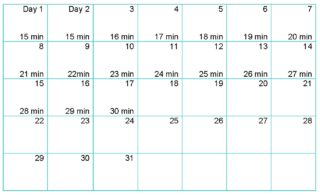


 Steven Hayes is widely considered to be one of the founding fathers of Acceptance and Commitment Therapy (ACT), and has authored over 400 academic publications! Get Out of Your Mind & Into Your Life applies concepts of ACT to help readers move from feeling stuck in a struggle against their own minds to assess what is truly meaningful to them and then pursue a life guided by those values.
Steven Hayes is widely considered to be one of the founding fathers of Acceptance and Commitment Therapy (ACT), and has authored over 400 academic publications! Get Out of Your Mind & Into Your Life applies concepts of ACT to help readers move from feeling stuck in a struggle against their own minds to assess what is truly meaningful to them and then pursue a life guided by those values.



